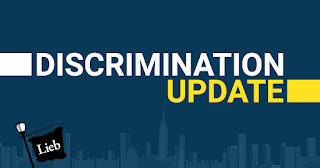Applicability
- The Act applies to summary proceedings or any other judicial or administrative proceeding to recover possession of a commercial unit, including evictions and ejectment actions.
- The Act only applies to a commercial tenant who:
- is a resident of New York State;
- is independently owned and operated;
- is not dominant in its field; and
- employs fifty or fewer persons.
- The Act requires the Court or the landlord (depending on the status of the eviction proceeding) to provide the tenant with the Hardship Declaration in English and in the language of the lease / tenancy agreement.
- The tenant should complete the Hardship Declaration if the tenant is suffering a financial hardship and is unable to pay rent or other financial obligations or obtain alternative suitable commercial property because of:
- significant loss of revenue;
- significant increase in necessary expenses related to providing protective equipment to prevent transmission of COVID-19; or
- moving expenses and difficulty securing alternative commercial property.
New Commercial Proceedings
- If there is no pending proceeding and a tenant provides a Hardship Declaration to the landlord, the landlord is prohibited from commencing any proceeding until May 1, 2021.
- If the tenant does not provide a Hardship Declaration, the landlord is required to file and serve the following to commence an action:
- affidavit of service of the Hardship Declaration in English and the language of the commercial lease / tenancy agreement;
- affidavit of service of predicate notices required by law and the lease;
- affidavit of the landlord / landlord’s agent attesting to the following:
- Landlord / his agent did not receive a Hardship Declaration from the Tenant; or
- The tenant returned the Hardship Declaration but the tenant is “persistently and unreasonably engaging in behavior that substantially infringes on the use and enjoyment of other tenants or occupants or causes a substantial safety hazard to others, with a specific description of the behavior alleged.”
- If the Court determines that the landlord failed to provide the Hardship Declaration to the tenant, the Court shall stay the proceedings for at least 10 business days to allow the tenant to complete the Hardship Declaration.
- Refers to proceedings commenced on or before March 7, 2020 and commenced within 30 days of March 10, 2021.
- Stayed for at least 60 days, or to such later date the Court deems necessary to provide tenants time to complete and submit the hardship declaration.
- Court shall issue stay and mail copy of the Hardship Declaration to the tenant.
- If the tenant provides a completed Hardship Declaration to the Court or landlord, the matter is stayed until May 1, 2021.
- In any proceeding in which an eviction warrant has already been issued, execution is stayed until the court holds a status conference with the parties.
- If the tenant provides a Hardship Declaration, the execution of the warrant is stayed until May 1, 2021.
- For the sheriff to execute the warrant of eviction, it must now state:
- The tenant has not submitted a Hardship Declaration and the tenant was properly served with a copy of the Hardship Declaration, listing dates of service by the petitioner and the court; or
- The tenant is ineligible for a stay under this act because the court determined that the tenant is persistently and unreasonably engaging in behavior that infringes on the use and enjoyment of other tenants/occupants or causes a safety hazard to others with a specific description of the behavior.

















